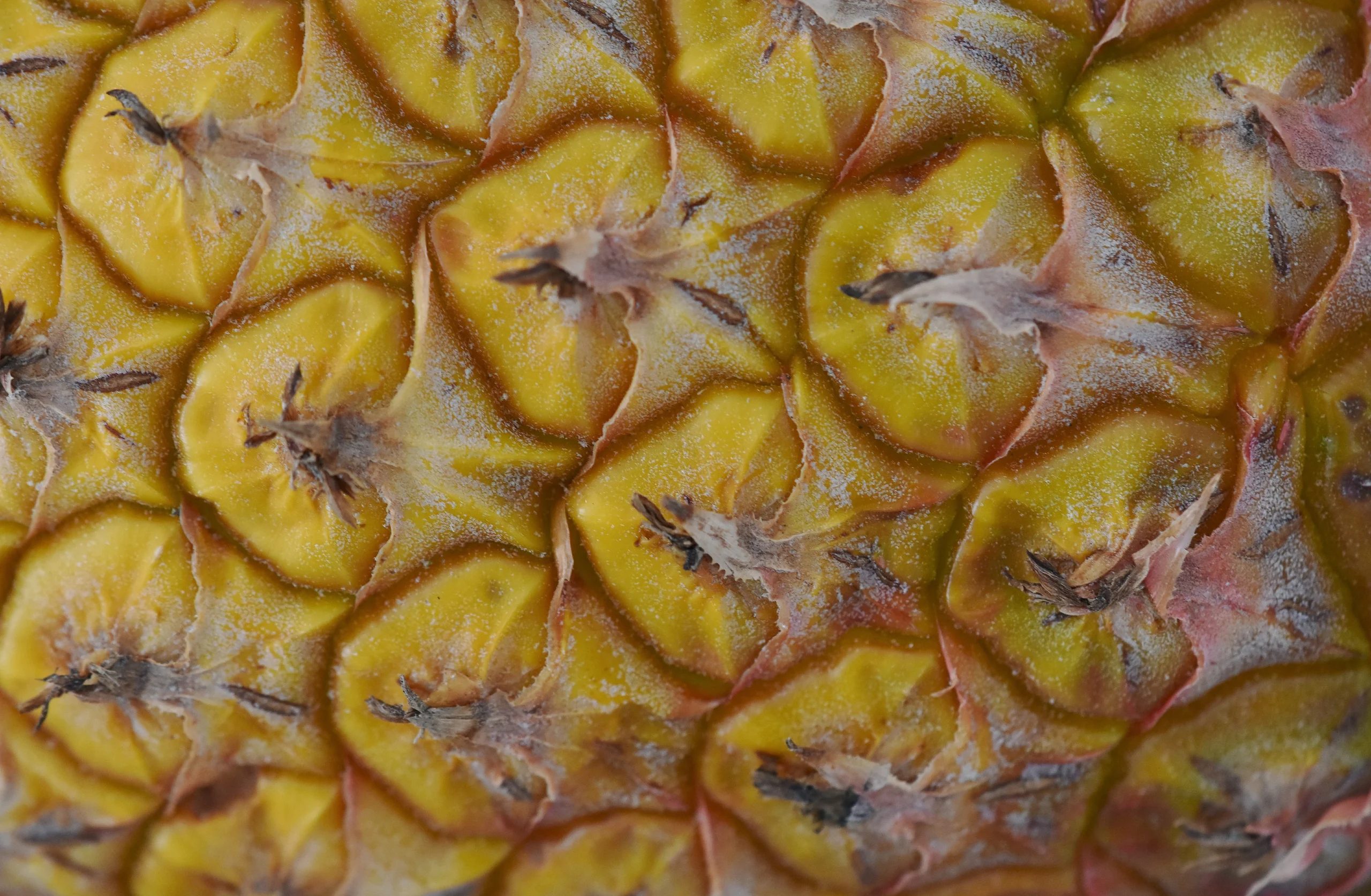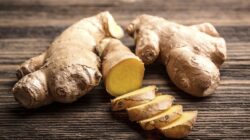Pineapple skin tea is quickly becoming a favorite tropical beverage for people who want to boost their wellness naturally.
This flavorful tea made from the pineapple peel or pineapple rind is rich in nutrients and bioactive compounds that can positively influence your overall health.
The health benefits of pineapple skin tea extend far beyond its refreshing taste—it offers a variety of health-enhancing properties that support your body from the inside out.
Many are turning to natural drinks like pineapple tea as part of their health routine. Unlike sugary beverages, this delicious tea made from pineapple peel contains natural antioxidants, bromelain, and vitamin C, making it a great choice for digestion, skin health, and weight management.
It’s not just a trendy tropical fruit drink—it’s a powerhouse of nutrients that can help you achieve better overall health and vitality.
People across the world are now rediscovering the health benefits of pineapple by reusing parts of the fruit that were once discarded.
The peel, core, and rind of a fresh pineapple still contain plenty of nutritional value. Scientists have found that these outer layers contain bromelain, an enzyme that aids digestion and has anti-inflammatory properties.
Drinking pineapple skin tea is a simple way to support your health, reduce oxidative stress, and enjoy the nutritional benefits of this healthy pineapple beverage every day.
Read: 10 Health Benefits of Ginger You Should Know About
1. What Is Pineapple Skin Tea?
Pineapple skin tea—also known as pineapple peel tea or pineapple rind tea—is a fragrant and nutrient-rich infusion made by boiling the outer peel of a ripe pineapple.
This soothing hot tea or iced tea is crafted from the usually discarded parts of the pineapple fruit, transforming waste into a healthy pineapple skin tea that supports digestive health, skin texture, and overall wellness.
Unlike pineapple juice, which is sweet and pulpy, this beverage is light, refreshing, and filled with subtle tropical notes.
As more people seek natural alternatives for wellness, drinking pineapple tea has become a simple and sustainable way to enjoy the health benefits of pineapple skin.
The pineapple peel holds many of the same nutrients found in pineapple, such as bromelain, vitamin C, and essential antioxidants that contribute to gut health, skin benefits, and anti-inflammatory effects.
It’s an excellent way to use pineapple fully and minimize food waste while enjoying a drink rich in nutritional benefits.
Traditional Uses and Cultural Roots
For centuries, tropical communities have known about the benefits of pineapple skin tea. In countries where pineapple grows abundantly, locals boil pineapple peels to create herbal infusions believed to aid digestion and boost immune response.
This tradition continues today as more people recognize the potential health benefits and the variety of health benefits offered by pineapple peel tea.
Traditional healers have long used pineapple rind to create remedies that promote healthy skin, bone health, and better digestive health.
The combination of bromelain in pineapple, vitamin C content, and antioxidant activity provides a natural health boost.
Modern research now confirms what many tropical cultures have practiced for generations—pineapple offers genuine anti-inflammatory benefits and numerous health benefits for those who incorporate it into their routine.
Read: The Health Benefits of Pineapple: A Tropical Fruit Packed with Nutrients
2. Nutrient Profile of Pineapple Skin and Peel
The pineapple peel may look tough, yet it hides a treasure trove of nutrients that support your overall health. Inside its textured outer peel, you’ll find compounds like bromelain, vitamin C, antioxidants, and dietary fiber—each offering unique health benefits.
Understanding the nutritional makeup of the pineapple skin helps you appreciate why drinking pineapple infusions can be such a powerful way to support your health naturally.
Scientists studying content in pineapple have revealed that even the pineapple rind and core contain valuable compounds found in pineapple fruit.
These include polyphenols, flavonoids, and essential minerals that play crucial roles in digestive health, skin health, and cellular repair.
By learning how these nutrients work, you can better grasp why the health benefits of pineapple skin and benefits of pineapple peel are getting global recognition.
Key Components: Vitamin C, Fiber, and Enzymes
The peel of a fresh pineapple is surprisingly rich in vitamin C, providing a natural way to strengthen your immune system and promote healthy skin. Its vitamin C content enhances collagen synthesis, improving skin texture and resilience.
Moreover, the high fiber levels in the pineapple peel aid digestion and help maintain gut health, while supporting weight management and reducing bloating.
Another major component is bromelain, a powerful enzyme found in pineapple that assists in protein breakdown and nutrient absorption.
This compound promotes smoother digestion and supports natural anti-inflammatory properties.
Studies suggest that bromelain may help reduce swelling and improve bone health by lowering inflammation in joints and tissues. This unique enzyme makes pineapple an exceptional tropical fruit with significant nutritional benefits.
Antioxidants, Polyphenols, and Flavonoids
The pineapple peel is also abundant in antioxidant compounds that fight oxidative stress—a key factor in aging and chronic disease.
Polyphenols and flavonoids found in pineapple peels help neutralize free radicals and improve overall cellular health. These substances enhance the body’s defense system, contributing to anti-inflammatory effects and protection against skin damage.
High antioxidant levels in pineapple rind tea and pineapple peel tea are what make them some of the best pineapple skin tea options for those seeking a natural health boost.
These compounds play a major role in reducing environmental damage, supporting skin benefits, and maintaining balanced energy levels.
When you make pineapple infusions at home, you’re tapping into one of nature’s most potent defenses for your overall health.
Read: EHR Systems: Electronic Health Records Redefining Health Care Industry
3. Health Benefits of Pineapple Skin Tea & Peel
The health benefits of pineapple skin tea reach far beyond its tropical flavor. This naturally sweet and aromatic drink delivers a perfect combination of vitamin C, bromelain, antioxidants, and fiber—all of which provide a variety of health benefits.
Many people now choose pineapple peel tea or pineapple rind tea as part of their wellness routine to enhance digestion, improve skin health, and maintain overall health.
Consuming healthy pineapple skin tea regularly can help balance your body’s internal systems and promote lasting vitality.
From easing bloating to strengthening the immune system, drinking pineapple tea can give your day a natural health boost while helping you stay hydrated and refreshed.
Supports Digestion and Gut Health
One of the main benefits of pineapple skin tea lies in its ability to improve digestive health. The bromelain enzyme present in the pineapple peel helps break down proteins more efficiently, making it easier for your body to absorb essential nutrients.
This process supports smoother digestion, reduces discomfort, and may even aid digestion after heavy meals.
The dietary fiber contained in the pineapple peel also promotes regular bowel movements, supporting gut health and maintaining a balanced microbiome.
For those seeking natural remedies for digestion issues, drinking pineapple or pineapple tea offers gentle and effective support without harsh side effects.
Anti-Inflammatory Properties
The anti-inflammatory properties of pineapple peel tea are among its most valued health benefits. Research shows that bromelain in pineapple has potent anti-inflammatory benefits, helping reduce swelling, pain, and inflammation in tissues.
Regular consumption of pineapple tea or pineapple rind tea may contribute to joint comfort and muscle recovery, particularly after exercise.
Compounds like polyphenols and flavonoids enhance these anti-inflammatory effects, supporting both internal and external healing.
Whether you enjoy it as hot tea or iced tea, this tropical fruit beverage can help your body recover naturally while strengthening your immune defenses.
Antioxidant Protection
The antioxidant levels in pineapple peel provide another layer of defense for your overall health. By neutralizing free radicals, these compounds protect cells from oxidative stress, which contributes to aging and chronic illnesses.
The vitamin C found in pineapple works hand-in-hand with these antioxidants to enhance your body’s resilience against daily environmental toxins.
Regularly drinking pineapple tea or adding pineapple peel tea to your wellness routine may help maintain youthful energy levels while safeguarding your cells.
Studies suggest that consistent antioxidant intake from pineapple and similar natural drinks supports long-term vitality and improved immune performance.
Skin Health and Immune Support
Your skin reflects your internal health, and the health benefits of pineapple skin include promoting glowing, healthy skin from within. Vitamin C stimulates collagen production, which improves skin texture and elasticity.
Meanwhile, antioxidant and enzyme activity from bromelain enhances circulation and cell regeneration, leading to smoother and clearer skin.
Beyond its beauty benefits, the pineapple peel strengthens immune function. Its high vitamin C content helps your body fight infections and reduces inflammation, giving your system a natural health boost.
As a result, drinking pineapple tea daily can be an easy way to nurture both your immune system and your complexion.
Weight Management and Detox Benefits
Looking for a natural beverage that supports weight management? Pineapple peel tea offers just that. It’s a low-calorie drink that contains bromelain, fiber, and antioxidant compounds that promote metabolism and detoxification.
Bromelain may also enhance fat breakdown, helping the body eliminate toxins more efficiently.
The natural enzymes found in pineapple support liver and digestive function, making it an ideal detox drink.
Replacing sugary sodas with a cup of pineapple or pineapple peel tea can contribute to gradual, sustainable results for those focused on maintaining a healthy lifestyle.
Eco-Friendly and Sustainable Benefits
Beyond its numerous health benefits, pineapple skin tea offers environmental advantages. Reusing the pineapple rind and outer peel reduces food waste, transforming what’s often discarded into a nourishing beverage.
This sustainable approach aligns with eco-conscious living and encourages people to incorporate pineapple fully into their diet.
As a result, you don’t just enjoy the benefits of pineapple skin tea—you also make a positive environmental impact.
Each batch of homemade pineapple tea or pineapple peel infusion represents a small but meaningful step toward a more sustainable lifestyle.
4. How to Make Pineapple Skin Tea (Pineapple Peel Tea Recipe)
Brewing your own pineapple skin tea is an easy and rewarding way to enjoy its numerous health benefits.
This tea recipe transforms leftover pineapple peel, pineapple rind, and even bits of the pineapple core into a delicious tea full of tropical aroma and nutrition.
It’s a sustainable drink that not only saves waste but also offers a refreshing, vitamin-rich boost to your day.
Making pineapple tea at home lets you control flavor and sweetness while preserving essential enzymes and nutrients found in pineapple.
Whether you prefer hot tea or a chilled iced tea, this simple process creates the best pineapple skin tea that’s both healthy and satisfying.
Ingredients
To make pineapple skin tea at home, gather the following ingredients:
- 1 medium ripe pineapple (use the pineapple peel or outer peel)
- 4–5 cups of water
- 1–2 slices of fresh ginger (optional, enhances digestion and adds a spicy warmth)
- Lemon or lime slices (optional for a vitamin C boost)
- Honey or cinnamon (optional for natural sweetness)
Each ingredient adds to the overall nutritional benefits, transforming this simple infusion into a potent drink for digestive health and skin health.
Preparation Steps
- Wash the pineapple peel and pineapple rind thoroughly to remove dirt or residues.
- Cut the peel into smaller pieces for even boiling.
- Add the peel, core, and optional fresh ginger slices to a pot of water.
- Boil pineapple peels for about 10–15 minutes until the water turns golden and aromatic.
- Turn off the heat and let the mixture steep for another 5 minutes to release more antioxidant content.
- Strain the tea into a cup or jug.
- Serve warm as hot tea, or chill it for iced tea—both options provide refreshing tea benefits.
Tips for Best Results
To get the best pineapple skin tea, keep these expert tips in mind:
- Always use ripe pineapple for richer flavor and higher bromelain levels.
- Avoid over-boiling; excessive heat can reduce the enzyme and vitamin C levels.
- Store leftovers in a glass jar in the refrigerator for up to two days.
- Combine with hibiscus tea or ginger tea for added color and aroma.
- Enjoy a cup of pineapple tea in the morning or after meals to aid digestion.
These small adjustments ensure every serving retains its antioxidant, anti-inflammatory, and health boost potential.
Safety Tips
Although drinking pineapple tea is safe for most people, a few precautions can help you enjoy it responsibly:
- Always wash the pineapple peel thoroughly to eliminate pesticide residues.
- People with pineapple allergies or sensitive stomachs should consult a healthcare professional before consuming it.
- Drink it in moderation—1–2 cups per day is ideal.
- Avoid adding excess sweeteners, which can offset the health benefits of pineapple tea.
By following these safety tips, you ensure every sip of healthy pineapple skin tea supports your overall health safely and effectively.
5. Case Study: Pineapple Peel as a Functional Beverage
Scientific interest in pineapple peel tea has grown significantly in recent years. Researchers in the United States have analyzed the properties of pineapple byproducts, confirming that the pineapple peel is more than just waste—it’s a potent source of antioxidant and anti-inflammatory compounds.
A study published in the Journal of Food Science (USA) revealed that pineapple peel exhibits high levels of bromelain, polyphenols, and vitamin C, making it suitable for functional beverage production.
Another study from the Journal of Nutritional Science (USA) demonstrated that beverages made from pineapple byproducts can help reduce oxidative stress, improve digestive health, and support skin benefits naturally.
Moreover, researchers at the U.S. National Institutes of Health (NIH) have reported that bromelain in pineapple can contribute to anti-inflammatory benefits and aid tissue healing.
These findings confirm that pineapple peel tea is not only a traditional remedy but also a scientifically validated health boost for modern consumers seeking natural wellness solutions.
In short, the health benefits of pineapple skin tea reflect a harmony between traditional knowledge and scientific evidence.
Pineapple peel proves that nature’s simplest ingredients can provide profound potential health benefits—for your body, your overall health, and the planet.
Frequently Asked Questions (FAQ) about Pineapple Skin Tea
1. Can I drink pineapple skin tea every day?
Yes, you can enjoy drinking pineapple tea daily—limit intake to 1–2 cups per day. This helps your body absorb bromelain without overconsumption.
2. Does boiling the peel destroy nutrients?
Boiling may slightly reduce enzyme activity, but most antioxidants and vitamin C remain active. Steeping rather than over-boiling helps preserve more nutritional benefits.
3. Can pineapple peel tea help with inflammation?
Absolutely. The anti-inflammatory properties of bromelain and polyphenols help lower inflammation and promote joint comfort naturally.
4. How does pineapple skin tea differ from pineapple juice?
Pineapple peel tea is lighter, lower in sugar, and higher in fiber and antioxidants compared to pineapple juice. It’s also easier on digestion and more hydrating.
5. Is pineapple peel tea safe for everyone?
Generally, yes. However, people with pineapple allergies or sensitive stomachs should check with a doctor before drinking pineapple infusions.
Conclusion
The health benefits of pineapple skin tea are both impressive and wide-ranging. From its natural anti-inflammatory effects and antioxidant power to its ability to aid digestion, support skin health, and enhance overall wellness, this humble drink is a tropical treasure.
Unlike many store-bought beverages, pineapple peel tea provides real nourishment. It’s packed with bromelain, vitamin C, and fiber that promote gut health, boost immunity, and even encourage glowing healthy skin.
Beyond personal wellness, making pineapple peel tea also supports sustainability by reducing waste and fully incorporating pineapple into your lifestyle.
Adding a cup of pineapple tea to your daily routine could be one of the simplest ways to refresh your body and mind.
From improving weight management to enhancing skin texture, this tropical fruit infusion delivers both pleasure and wellness in every sip.
Start small—use pineapple peels you already have, follow the pineapple tea recipe, and experience how drinking pineapple tea can naturally support your health for years to come.
References / Bibliography
- Nutritional Composition and Therapeutic Potential of Pineapple Peel. Journal of Food Science, USA.
- Properties and Therapeutic Application of Bromelain: A Review. Journal of Natural Products Research, USA.
- Pineapple Peel Extract and Its Antioxidant Effects. American Journal of Food Chemistry.
- Functional Beverages from Pineapple Byproducts. Journal of Nutritional Science, USA.
- Vitamin C and Bromelain Activity in Pineapple Peels. U.S. National Institutes of Health (NIH) Research Papers.









